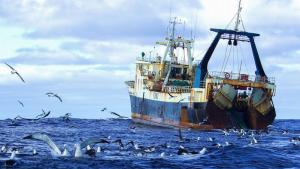Content:
No flag can claim the high seas, but many nations exploit them. As a result, life in the two-thirds of the oceans beyond any country's territorial waters faces many threats that are largely unregulated, including overfishing and the emerging deep-sea mining industry.
Now, nations are negotiating the first-ever high-seas conservation treaty, which the United Nations expects to finalize next year. As delegates met this week at U.N. headquarters in New York City to hash out the details, marine scientists moved to influence the outcome. One research group unveiled the results of a global mapping effort that envisions expansive new marine reserves to protect key high-seas ecosystems. Other teams are working on maps of their own using powerful modeling tools to weigh a reserve's potential for achieving key conservation goals, such as protecting important feeding grounds or helping sea life adapt to warming seas, against its economic costs.
"The policy opportunity this represents is much rarer than once in a lifetime," says marine ecologist Douglas McCauley of the University of California, Santa Barbara. Nations are asking "how we should protect two-thirds of the world's oceans, [and] it's the first time in human history that this has ever been asked."


